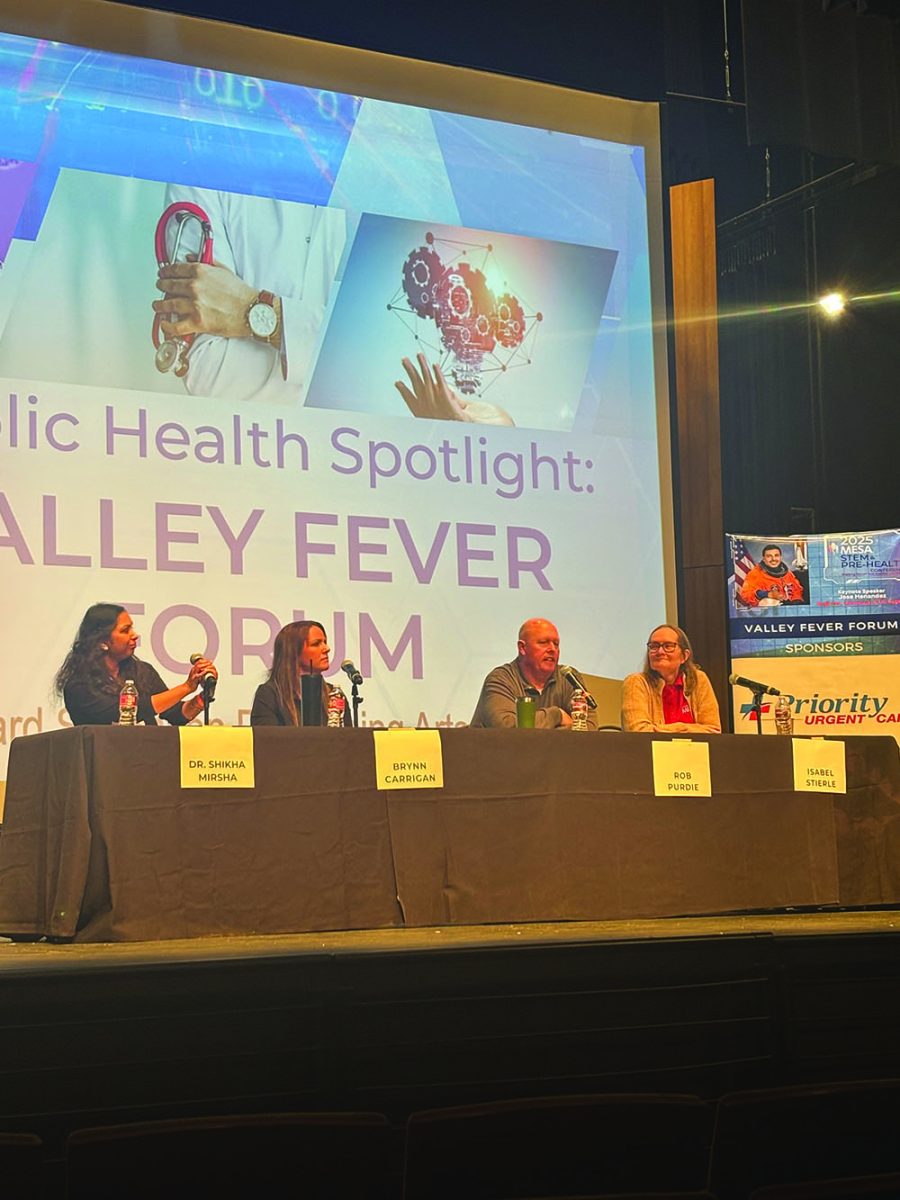Minorities uncertain of their future with Trump
December 2, 2016
On Nov. 8, the United States chose Donald J. Trump to be our president. This decision did not come without anger and protest from one side and rejoice from the other. On Nov. 9, the protests against Trump were well underway in cities such as New York, Los Angeles, Miami, San Francisco, Chicago and numerous other cities around the nation. Social media was buzzing left and right with think pieces from both sides, congratulatory posts to Trump, disheartening Hillary or third-party supporters expressing their outrage that their candidate did not win.
One CNN reporter, Van Jones, spoke about what he thought about this election. He said, “This election ended up the way it did mainly because this was not a minority decision. It was a middle American decision, and that’s who Trump targeted during his campaign.” If this was truly not a minority/marginalized group decision, then how do they feel about it?
Bakersfield College Chicano history professor Rosa Garza had a few words to say regarding the outcome of the 2016 presidential election.
“Students are worried if they are undocumented, whether or not they can stay. Others are worried about which programs he’s going to get rid of like Financial Aid since some of the people he is appointing don’t really support the public school system,” Garza said. “I’m a historian, so I’m not shocked by this outcome. Many of the Chicanos and Latinos who voted against Trump are well-versed in our history and our issues. There is a large part of the Latino community who are Republican and voted for Trump, and they tend to lean more towards the evangelical side, which is fine.”
Looking at the public’s overwhelming refusal to accept the outcome, Garza’s opinion isn’t too far off from what many people have been saying. Just as people were against Trump, others were supporting him. Carlo Balmet, a first-time Latino voter and BC football player, voted for Trump proudly.
“I voted for Trump because I felt that he was the better choice, and that he would help out our economy more than Clinton would. I wasn’t a big fan of her from the beginning,” Balmet said. “It was sad to see how everyone reacted after the election, but it’s their right to protest so you can’t tell them not to. I feel like he is going to help boost our economy, and get us back to a healthy financial state.”
Some people didn’t vote for Trump or Hillary, they voted for some of the third-party candidates such as Gary Johnson or Jill Stein, simply because they didn’t connect to the messages of either candidate.
Tai Nguyen-Le, a Vietnamese-American, voted for Jill Stein because he didn’t like Trump or Hillary.
“I didn’t like either of them. I thought that Donald was just a bully, and I didn’t feel comfortable with Hilary enough in office. I don’t really trust her that much. That’s why I just voted third party,” Nguyen said.
People like Jennifer Bergman, who is a part of the LGBTQ community was an avid Bernie Sanders supporter, voted for Clinton not because they supported her fully, but she couldn’t let Trump win. “It makes me so upset that people didn’t vote or voted for Harambe and Hennessey. The point wasn’t voting for Hilary, but it was not letting him win. He is not the right person to lead our country,” Bergman said. “The way he and his running mate have spoken about the LGBTQ community is disgusting and outdated. How they threatened to repeal the same-sex marriage law. That’s insane to try, and prevent or disrupt people’s happiness.”
One of the main emotions many Americans displayed based upon the reaction of the public was surprise and shock. Whether they were shocked and/or surprised at who won, or which states voted democrat or republican, shocked and surprised fit the bill for majority of the country.
Shanice Watson, a Jamaican-American political science major, wasn’t.
“I wasn’t shocked at the outcome of the election. It was just more me sitting there, realizing and processing what was going on: that America actually decided this way.
“It just showed the truth about how a lot of people may feel.” Watson said. “I’m not shocked that people are protesting in the streets. People are tired of being treated a certain way, and with him being in office it’s unclear if that will stop. He doesn’t support many of the things minorities do.”
With all of this, the main question for America, especially minorities and people from marginalized groups, is where do we go from here? Do they quit? Protest? Support the president whether he was your choice or not? What do we do as a country? “We have to keep trying and moving forward economically, financially, and socially. Don’t let these four years break you,” said Watson.





